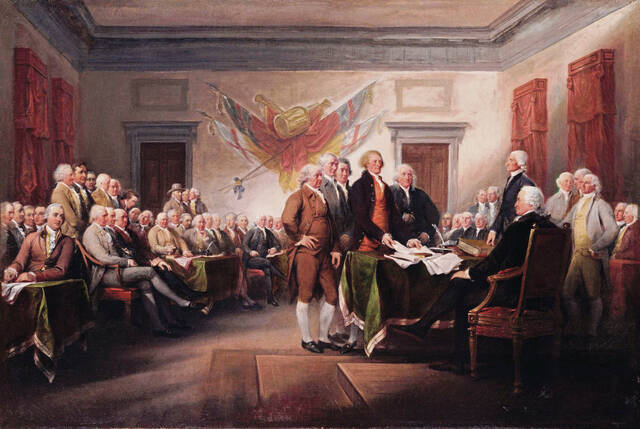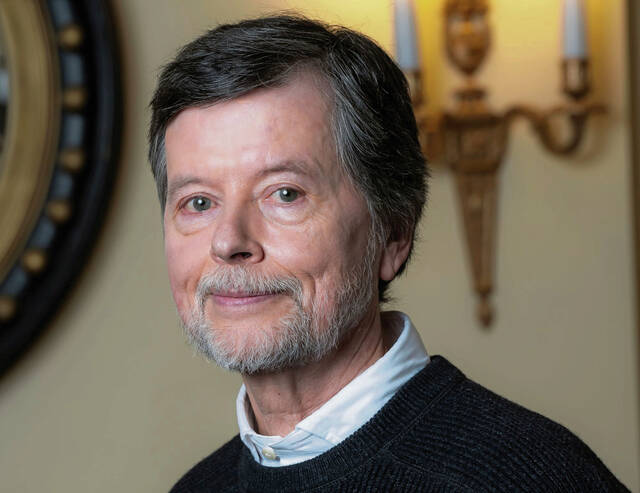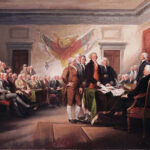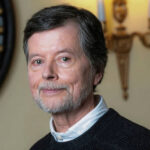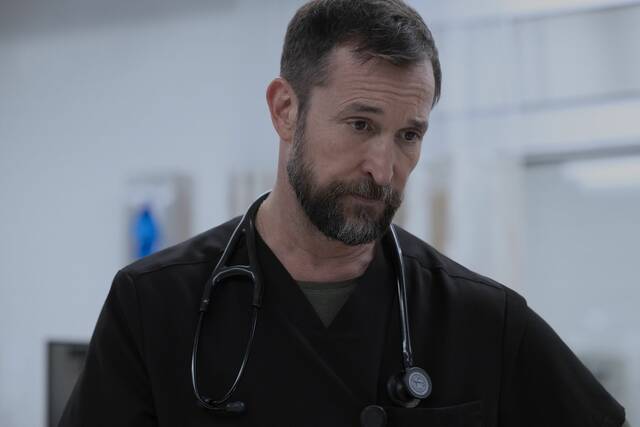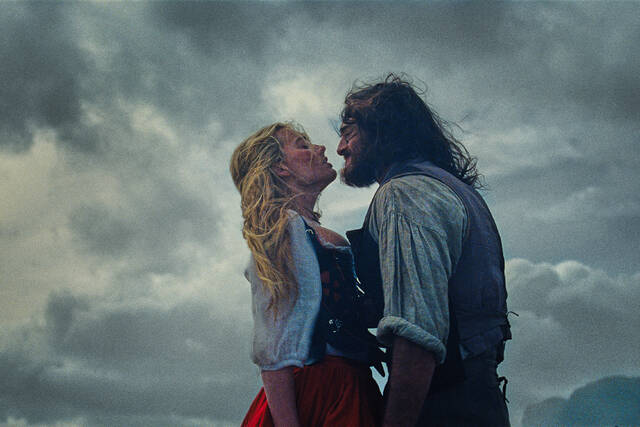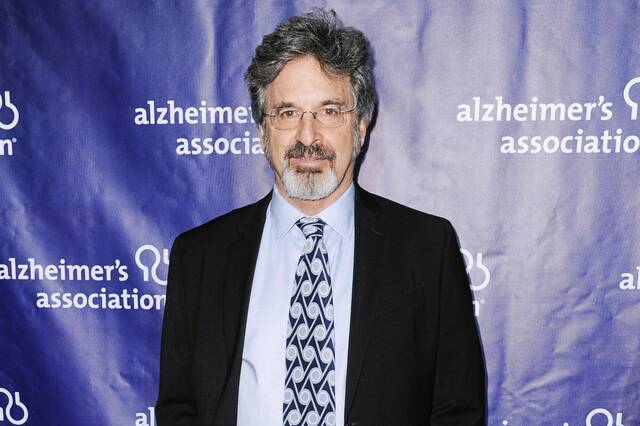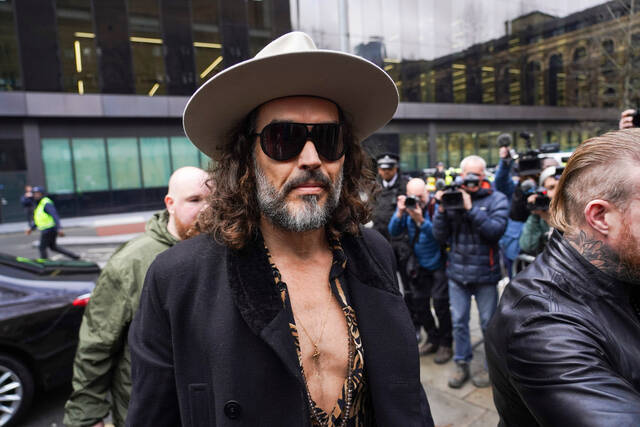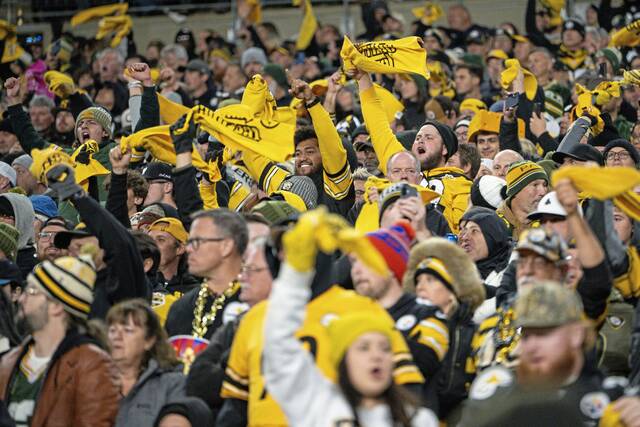Trib Total Media TV writer Rob Owen offers a viewing tip for the coming month.
PBS may be worse for wear following federal defunding, but public TV documentarian Ken Burns remains at work with colleagues on his expansive documentary series.
Burns’ latest six-part, 12-hour opus, “The American Revolution,” was made with co-directors Sarah Botstein and David Schmidt. It premieres 8-10 p.m. over six consecutive nights, Nov. 16-21, on WQED-TV. Its premiere is timed to the 250th anniversary of the start of the American Revolutionary War, which began in the spring of 1775, more than a year before the Declaration of Independence.
In a virtual press conference last month, Burns said one of the goals of this project was to go beyond the simplicities of mythology — George Washington chopping down the cherry tree and never telling a lie, “don’t fire until you see the whites of their eyes,” etc.
“We have seen our revolution in kind of bloodless, gallant myth, just guys in Philadelphia thinking great thoughts, and that’s a big part of the story,” Burns said. “This is a revolution, a bloody, bloody revolution.”
Schmidt said the revolution was many different things at once: the creation of a nation, a war for independence, a civil war, a world war fought among dozens of nations in North America and in Europe and ultimately an event that united the American states.
“What surprised me and really unlocks the key to this whole thing is that those three things — republic, union and independence — were actually not the goals at the outset of this war,” Schmidt said. “The war at its start was about standing up to tyranny, liberating Boston, restoring things to the way they used to be under the British Empire, and it’s only the course of the war that makes independence, union and republic necessary.”
Narrated by Peter Coyote, “The American Revolution” features actors voicing historical characters. Those lending their voices include Adam Arkin, Kenneth Branagh, Josh Brolin, Bill Camp, Tantoo Cardinal, Josh Charles, Hugh Dancy, Claire Danes, Jeff Daniels, Keith David, Hope Davis, Paul Giamatti, Domhnall Gleeson, Jonathan Groff, Tom Hanks, Ethan Hawke, Maya Hawke, Samuel L. Jackson, Pittsburgh native Michael Keaton, Mandy Patinkin, Wendell Pierce and Meryl Streep.
Botstein said the film’s soundscape reflects North America in the 18th century.
“The music in the show ranges from classical and Baroque influences to Scotch-Irish music that Ken particularly loves and has a great ear for, to Native American influences, Black music, folk music,” Botstein said. “War is both a very loud and scary and viciously violent sound, and also very quiet and very lonely and very eerie. Between the music and the sound effects, we spend a lot of time with our editors and our sound editors and our music editor trying to calibrate when to be quiet, when the music should take over, when the sound effects should take over, when the voices should take over.”
Production on “American Revolution” began in December 2015, when Barack Obama had 13 months remaining in his presidency.
“As we’ve worked on it, of course, the rhymes and the echoes of the past constantly change,” Burns said. “It’s our job as filmmakers to be disciplined to that. We know the ways in which it’s rhyming now, I suppose. Maybe next month it’ll be rhyming in entirely different ways or variations on the way they’re rhyming now.
“But our job was to tell a complex story without focusing on that,” Burns continued. “There’s a moment when the wife of a German general is traveling across the Atlantic, delayed by the birth of her third daughter. And she’s making the perilous trip alone. And she’s worried because rumor has it that Americans eat cats. If our film had come out last fall, people would say, ‘Oh, you put that in because of what’s going on in Springfield, Ohio, and what the campaign was distracted by for so long.’ So there are going to be rhymes. But our job is to try to tell a story.”
Burns said because the filmmakers have been “assiduous in essentially being umpires, calling balls and strikes about everyone and introducing you to scores of other people, the series will offer viewers, regardless of their perspective … a chance to reinvigorate the democratic and republican — both small ‘d’ and small ‘r’ — ideals that essentially emerged to put the ‘us’ back in the U.S.”
Schmidt noted “American Revolution” is not an effort to replace what viewers learned in school but to expand on that learning.
“I can only speak to my experience, but I would say that what I learned in school was not wrong. It was just incomplete,” Schmidt said. “We didn’t have the context that we’re able to offer now about all of the millions of people who were affected by this war. A lot of that has to do with the work that people have done in the last 50 years, since the bicentennial, to surface more information about more people (and) digitizing documents. It’s a lot easier for us to find what anybody had to say.
“There’s just a lot available to us that … my teachers growing up just didn’t know,” Schmidt continued. “And what we’re offering is more information than we had. I think it makes the story make a whole lot more sense than just the bare bones … that many of us have in our heads and that I had in my head going into this project.”


